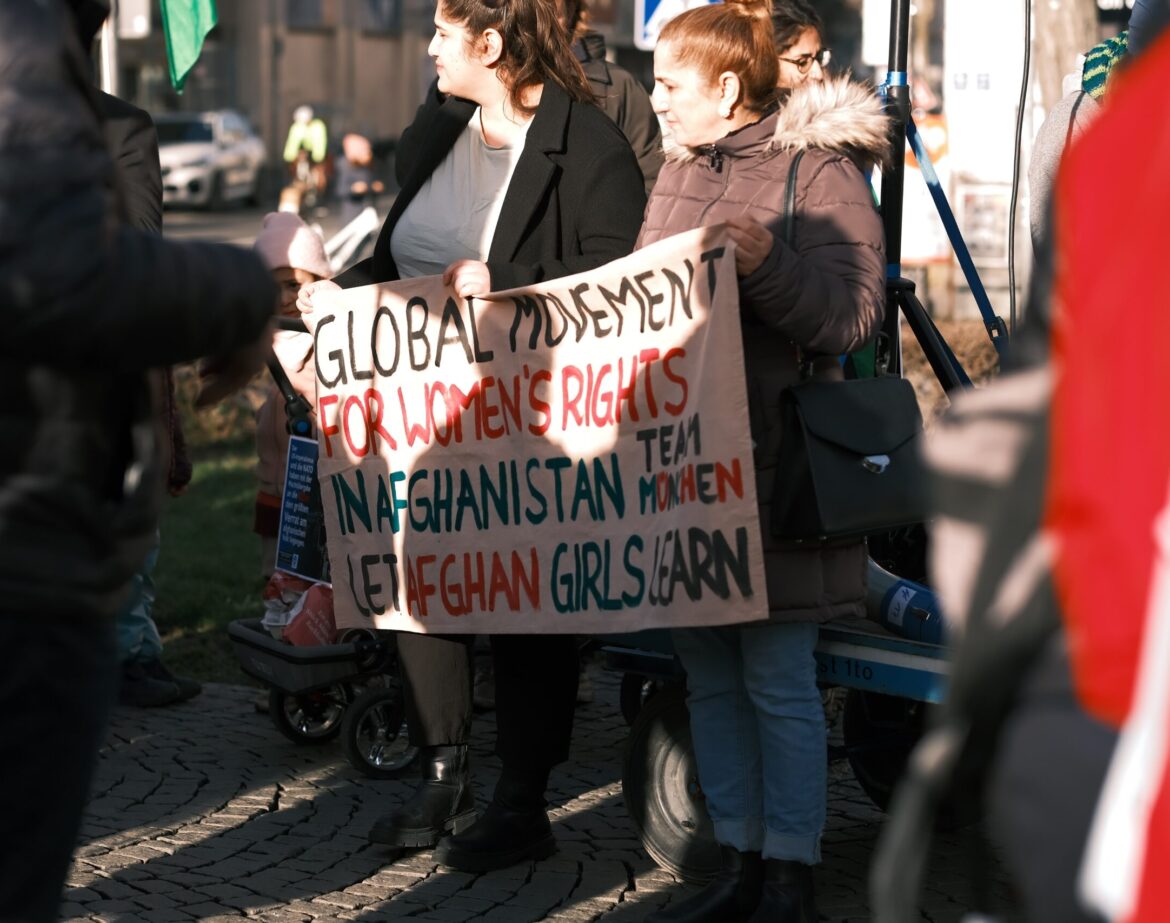The war on women’s rights and bodies has been ongoing for decades, but in some places, the battle is worse than in others. On December 20, 2022, another heavy loss occurred in the progression of women’s rights as the Taliban banned women from universities in Afghanistan. When added to the list of restrictions that had already been made, the lack of access to university education and higher education resources may have been the last glimmer of hope these women had to escape the gender boundaries they had been forced into.
Restricting women’s attendance at secondary school, certain subjects, the types of subjects women could study, and their required learning environments, which consisted of elderly male or female professors in female-only classrooms, made education for Afghani women challenging. Since the return of the Taliban in 2021, women have been more frequently experiencing severe setbacks to their rights. Alongside educational constraints, Afghani women have also been banned from parks, gyms, and public baths in Afghanistan’s capital, Kabul.
These drastic actions that implicate thousands of girls’ and women’s futures in Afghanistan are said to be in the name of Islam, correlating women’s access to higher education with religion. Another important aspect is that an entirely male cabinet made this decision. The Minister for higher education in Afghanistan, Neda Mohammad Nadeem, had previously stated that female students had ignored Islamic instructions regarding dress code and being accompanied by a male relative when traveling. Nadeem declared, “[Women and girls] were dressing like they were going to a wedding. Those girls who were coming to universities from home were also not following instructions on hijab.” This quote sharply contrasts Western society’s perception of education and self-expression through fashion. Where women are encouraged to explore their identities through clothes in one case, they are punished in the other. However, one student told BBC “She had been studying Sharia Islamic law and argued the Taliban’s order contradicted “the rights that Islam and Allah have given us.” Even with varying degrees of knowledge of Sharia Islamic Law, this decision received an outcry from feminist activists, scholars, and government officials alike.
Even with worldwide condemnation, there remains to be yet any change regarding this order of university exclusion, which further stresses the point that women’s rights will never be at a fair standard if such basic rights continue to be violated worldwide. With this ban, women are being pushed into the shadows of society rather than freedom and modernity. This seems to be what the Taliban seek: erasing women’s presence in public life and politics. Thus, what fate is left for women?
Executive director at UN Women Sima Bahous stated, “This deliberate slew of measures of discrimination against Afghanistan’s women and girls is also a terrible act of self-sabotage for a country experiencing huge challenges, including from climate-related and natural disasters to exposure to global economic headwinds that leave some 25 million Afghan people in poverty and many hungry.” She also noted that this violation to the right of education “prevents [women and girls] from realizing their full potential”, which adds yet another social consequence on top of the many repercussions being faced.
This sharp cut-off from education not only unfavourably halts these girls’ personal growth, goals, and aspirations but also closes off numerous working fields in high labour demand. As Afghanistan is facing a humanitarian and economic crisis, the decision to keep women out of schools and universities will leave many out of the workforce. Afghanistan’s economy could have been expected to gain at least $5.4 billion if women were allowed to participate. This inequality harms women’s growth and the country’s economy, thus showing that this violation of women’s fundamental rights has a cost.
This decision is a heavy loss for the women in Afghanistan and women’s rights worldwide. As Dr. Natalia Kanem, head of the UN Population Fund, said, “As the world faces multiple, overlapping crises, we must not forget the women and girls of Afghanistan. When women’s and girls’ basic rights are denied, we are all diminished”.
Edited by Sabrina Nelson
Mayah Esmail is a U2 student at McGill University pursuing a major in Economics and a minor in Psychology. She is originally from Vancouver, BC, and her interests vary from economic policies, feminism, and socio-cultural issues.

